Fall 2023 Student Spotlight – Minzhi Xing, MD, MPH
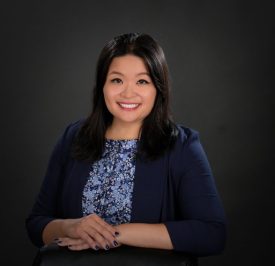
Dr. Minzhi Xing
Hello, my name is Minzhi. I was born in Singapore and did my undergraduate and medical degrees at the University of Sydney in Australia. Subsequently, I moved to the US for further training and completed my MPH at the Johns Hopkins School of Public Health. During the COVID-19 pandemic, I served as the Chief Epidemiologist at DeKalb County Board of Health, a county health department that works to promote, protect, and improve the health of more than 750,000 residents in Georgia. The overarching goal of my work is to bridge the gap between the practice of medicine and public health by using data-driven and community-centered approaches to create, implement and evaluate interventions.
What is your latest project?
As a public health practitioner focused on meeting the needs of the community first, I am currently working on a number of initiatives in collaboration with health departments to increase local public health capacity throughout North Carolina. I am also part of a UNC Gillings team partnering with the Kandang Kerbau (KK) Women’s and Children’s Hospital and the National University of Singapore to enhance implementation science and health services research capabilities.
What do you enjoy doing when you’re not working?
Outside work, I spend most of my time loving and/or chasing after my toddler and my dog, both of whom constantly remind me that life is not to be taken too seriously. What are your favorites ways to practice self-care?
Long walks, reading for fun, playing musical instruments, movie nights, meditation, exercise and therapy.What is something that you are looking forward to?
Returning to Singapore in 2024 to strengthen our partnerships and spend quality time with family!
Spring 2021 Student Spotlight – Anne Berry
Anne Berry, MD, is the Spring 2021 Student Spotlight. Dr. Berry is currently a first-year resident in Preventive Medicine. As part of this program, she is completing an MPH in the Population Health for Clinicians concentration. She is the oldest of her parents’ four children. She grew up moving around, from Oklahoma to Pennsylvania, Sydney to Tokyo, which she really loved!
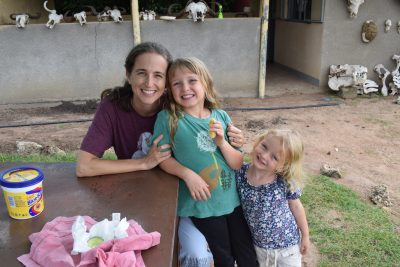
Dr. Anne Berry poses with her children, Susanna and Louisa. This photo was taken at a rest area in the Serengeti National Park in Tanzania (note the buffalo and antelope skulls in the background!)
What do you do at Gillings (and why do you love it)? (this can include any current projects that you are working on)
As an MPH student at Gillings, I’ve taken some incredible classes. Maybe because it’s been a long time since I was in school before this, being able to spend my time learning and being taught by people who do such amazing work seems like a real privilege to me. I especially love when my instructors connect us with people outside the class to work on a project in the “real world,” like the collaboration with community environmental justice activists that Courtney Woods facilitates for us in her EJ course, and the policy project on rural maternity care closures I’m involved with through Pam Silberman’s health policy and advocacy course. And I am so inspired and energized by the community-based participatory research approach I’ve learned from Alex Lightfoot in her classes.
I hear that you had an interesting path to UNC. Could you tell us about it?
After finishing med school in 2008, I did a Family Medicine residency at a program in the Caribbean immigrant community of Lawrence, MA, focused on training doctors to work with underserved communities. Then I moved to Clendenin, WV, to work in a federally qualified health center where I helped start a maternity care and breastfeeding support program. After five years in West Virginia, my partner and I joined a Catholic volunteer organization called Maryknoll. We moved with our two daughters, who were 3 and 6 years old at the time, to Mwanza, Tanzania. I worked for three years in a small hospital in a rural area outside Mwanza, in the Reproductive and Child Health clinic and the HIV care center. The many barriers to health faced by people I worked with these different places – a U.S. immigrant community, a rural Appalachian community and a Tanzanian village community – were very different, but in some ways also similar. I realized I wanted to learn how to work “upstream” to change these unjust structures, and how to combine this work with my maternity care and women’s health work as a family doctor. I hadn’t even heard of the medical specialty of Preventive Medicine, but through talking with many wonderful people I’d had the chance to work with up to that point, I found out about the PrevMed program at UNC. I realized its combination of academic public health studies and practicum rotations was perfect training for expanding my work into a combination of public health and clinical care. And the diversity of experiences and interests among my incredible fellow PrevMed residents here has made my experience really wonderful so far.
What is your favorite hobby?
Reading: science fiction, poetry, biographies, history and most of all reading to my now 7- and 10-year-old every night.
What dessert would you say best describes you as a person? (if you cannot think of a dessert, you can pick food in general)
I love dessert, so this was hard for me to answer because I just kept thinking of all the delicious desserts I’d like to eat, but none of them really answered the question… Then finally I realized, it’s those Valentine conversation hearts because I love to talk with people!
When it is safe to travel again, where would be the first place you would like to travel and why?
I really want to get together with the other six volunteers from my Maryknoll orientation class. They all inspired me in different ways during our 10-week orientation together, and the 3.5-year program would have ended by reuniting the class for two weeks of reflection and sharing experiences from the different countries we worked and lived in. But because of the pandemic, we had to make do with virtual sessions together as we all finished our time in our host countries and prepared for returning to the US. So I really look forward to finally gathering in person, to be reenergized and recommitted to cross-cultural social justice work by sharing with these 6 amazing people.
What is something that you are looking forward to? (this can be professional or personal)
I’m really looking forward to going to UNC women’s basketball games in person! I love college basketball, and while UNC will never take the place in my heart of my undergrad alma mater, Stanford (go Cardinal!), I was so excited when I matched to the Preventive Medicine residency program here to think that I could go to Tar Heel basketball games and bring my kids. So we are all crossing our fingers for a healthy, safe basketball season next year!
Fall 2020 Student Spotlight – Sudipta Hyder
Sudipta Hyder is a second-year residential MPH student in the Leadership in Practice concentration at UNC Gillings. She is an international student, originally from Canada and expected to graduate in December 2020. Sudipta’s recent work focuses on the role of Maternity Waiting Homes in Maternal and Child health outcomes in Sub-Saharan Africa.
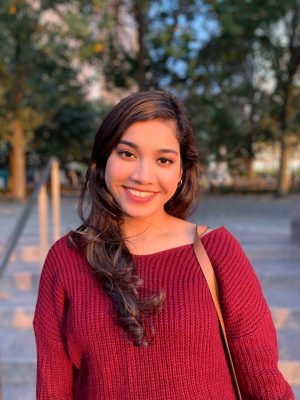
Sudipta Hyder
What do you do at Gillings (and why do you love it)?
I am a Master’s in Public Health student in the Leadership concentration, with a special interest in Maternal and Child Health. I had the experience of being a student in MPH@UNC as well as the residential platform, and I loved both! Being a part of the Gillings family has allowed me to develop lifelong friendships with people who share similar interests and it enabled me to immerse myself in a diverse setting. The knowledge I gained from my program has been an integral part of my career and personal development. I have been able to explore different areas of public health and have fortunately been given opportunities to select topics that interest me the most. I am filled with endless gratitude for the prospects that Gillings has provided me with, along with the immense support I have received from the faculty members.
What is your latest project? (This could be a recent practicum experience or work-related)
I was given the opportunity to work on a project with the UNC Lineberger Comprehensive Cancer Center (LCCC), supervised directly by the LCCC Project Manager, Alexis Moore. UNC Lineberger Comprehensive Cancer Center is North Carolina’s only public National Cancer Institute designated comprehensive cancer center. My project was offered by Lineberger’s Office of Community Outreach and Engagement (COE) office. The COE office is a part of LCCC, and it ensures that UNC Lineberger research, clinical care, and programmatic efforts are timely, relevant, responsive, and integrated with community perspectives. The main focus of my work was to assist the COE office with the development of a Community Advisory Board evaluation. I was involved with assisting in searching, reviewing, and abstracting articles on methods and measures for evaluation, developing a conceptual framework, and creating a survey to guide the evaluation.
My practicum helped me enhance my negotiation and mediation skills in order to overcome various challenges. This experience taught me valuable lessons, such as communicating effectively with my supervisor, mentor, and teammates, learn the value of time management, and be flexible in my work ethics. From this practicum opportunity, I have taken away achievements to demonstrate success and professional growth.
This semester has been a unique one due to COVID-19. How have you adjusted?
The current COVID-19 pandemic has had an unprecedented impact on the world, including on myself. One of the most challenging things I had faced this year was coping with the loss of both of my grandparents from the virus. Mourning the loss of a loved one is hard enough, but the death of my grandparents became even more difficult during the time of the pandemic because there was no chance of closure as I was quarantined alone and thousands of miles away from my family. I often felt a profound sadness and was at a loss of motivation, especially during the most critical points of my practicum and semester. My professors and peers did an outstanding job by providing me an outlet of emotional support when I needed it the most.
My experience has taught me that at the end of the day, it was important to look back and checkmark off all of the items that I’ve completed. Knowing that I completed my small tasks helped me to be motivated for future goals. I also picked up new hobbies to keep me happy and busy; one of which was learning to cook Bengali food and the other was doing at-home workouts to help burn off the calories that I gained from eating my home-cooked meals! The most important takeaway from my experience was staying in touch with classmates, in addition to reaching out to faculty staff as needed. Regardless of the challenges that came with the pandemic, I learned that assistance is always available if one has the courage to ask for help.
What is a fictional character that you identify with (can be from a book, TV show or movie)?
One fictional character that I identify with is Dory, from Finding Nemo. Dory is a wide-eyed, blue tang fish who suffers from memory loss every 10 seconds or so. As things all became online this semester, it was especially hard for me to remember and keep track of all of my due dates, meetings, and important deadlines. I almost had to set multiple alarms to remind myself of important dates. But then Dory says, “Just keep swimming,” and it gives us the hope we need to reach our goal – to finish strong. This expression is very close to my heart, as it has been a constant reminder that no matter how difficult circumstances may be, you just need to push yourself towards your goal and finish stronger than you started.
If you could wake up tomorrow having mastered one new ability, what would it be?
If I could master one new skill, it would definitely be public speaking. My training at Gillings has helped me communicate and connect with a group of people, allowing me to gain a new confidence. Often times, I have many ideas and thoughts that I want to share with others, but I will sometimes find myself stumbling up on my words and end up missing the train of my thoughts. Therefore, I think that if I can enhance my public speaking skills, I can find myself to become a more engaging person and have high-quality interactions with others. Mastering this skill can also open doors to unique opportunities, lead, and inspire others. If I could wake up tomorrow and be a master at public speaking, I could express my thoughts from a place of joy instead of fear.
What is something that you are looking forward to?
I look forward to embarking on my journey and new work opportunity with UNICEF, in Phnom Penh, Cambodia. My initial interest and knowledge in public health was cemented by my internship with UNICEF Malawi in 2018, a month before my very first semester at Gillings. From then, I now feel that I have gathered new knowledge, skills, and improved my work ethic. I look forward to being able to apply my new expertise and demonstrate the various public health tools that I have collected from my interdisciplinary research and courses. Last, but not least, I would like to continue to build my connections with renowned public health practitioners and individuals with the goal of making the world a better place for the public!
Spring 2020 Student Spotlight – Leslie Laughrun
Leslie Laughrun is a Spring 2020 graduate of Leadership in Practice MPH concentration at the UNC-Asheville campus. She is currently an operations director at Mission Children’s Hospital in Asheville, N.C.
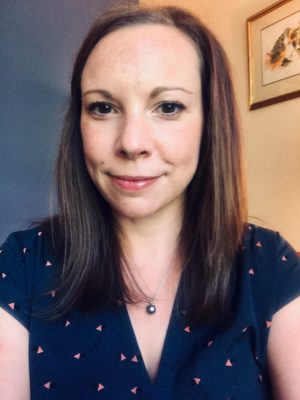
Leslie Laughrun
What do you at Gillings (and why do you love it)?
I am a new graduate of the very first PHLP Leadership in Practice cohort in Asheville, N.C. I love our Asheville program because of the dedicated public health servants who worked so hard to bring the program to fruition. They are the embodiment of public health values and their vision of place-based public health is exactly what we need to engage communities and move our work forward.
What is your latest project? (This could be a recent practicum experience or work-related)
My latest project has been ushering my teams through the COVID-19 response. I am an operations director at Mission Children’s Hospital in Asheville, N.C., and I have leveraged my public health training to guide how we continue to provide necessary health care services is a safe and responsible manner. I have also advocated for improvements to organizational policies to better align with Public Health goals in the context of disease spread.
What do you like to do when you’re not at work?
When not at work, I enjoy being outdoors and working in a new role on the board of directors for a local childcare center. The center is in the process of raising a new facility in a location that will better serve the children and families, so it is an exciting time to be involved.
If you could have a superpower, what would it be and why?
Perspective is everything when it comes to removing public health barriers. My superpower of choice would be to change people’s perspectives without them realizing it! With this, I could change mindsets and policies that stand in the way of our goals for health, well-being and equity.
What have you learned (or are learning) that has made a difference to you?
This program has given me a heightened sense of awareness of how rampant structural racism is in our society. Though it is easy to become discouraged by this, I hope to convert my awareness into action by challenging those structures and mindsets, channeling my would-be superpower a bit.
What is something that you are looking forward to?
I look forward to continuing to find purpose in making a difference with the teams I lead and with the people we serve. While it is easy to see so many challenges with public health, we must remind ourselves that we make a difference each and every day and peoples’ lives are better for it.
Fall 2019 Student Spotlight – Sheila Drakeley
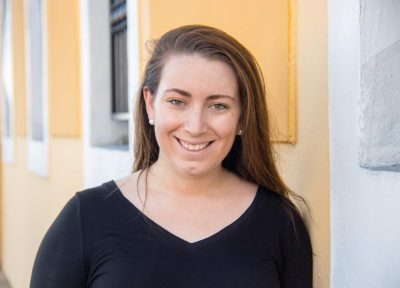
Sheila Drakeley
Shelia Drakeley is this issue’s Student Spotlight. Sheila Drakeley is a second year MPH student in the leadership concentration. Her recent work focuses on Women’s Health. She will be graduating in May 2020.
What do you do at UNC Gillings (and why you love it): I am a Master in Public Health student in the Leadership concentration, with a special focus on Maternal and Mental Health. I have enjoyed my time at Gillings and my opportunities to learn in a program that focuses on current issues in Public Health. Being a part of the Gillings community has allowed me to meet and learn from students from around the globe, while training under renowned professors in their respective fields.
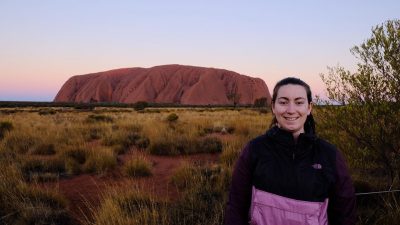
Sheila stands in front of Uluru at Uluru-Kata Tjuta National Park in the Northern Territory, which is a sacred spot to the aboriginal people of Australia. She is there to watch the sunset and watch the rock’s color shades change as the sun light hits it.
Tell us about your practicum: I had the pleasure of completing my practicum experience in Melbourne, Australia at Monash University in the Monash Centre for Health Research and Implementation (MCHRI). With the MCHRI team, I was assigned to a project to test the accessibility of a Virtual Patient Assistant (VPA) in providing prenatal/ preconception health advice to women in Australia. The project was first field tested in Boston, Massachusetts and found to be successful for the target population. My practicum consisted of recruiting and executing focus groups with women between the ages of 18 – 45 to understand the benefits, acceptance and improvements the VPA system would need in order to be successful in an Australian context. In addition, understanding and evaluating the current guidelines and research compiled around preconception care. This work has since been submitted for presentation and publications and is pending acceptance.
What has been your greatest classroom experience so far? Being a part of the first online cohort for the Leadership concentration, I have thoroughly enjoyed the ability to take classes and learn while around the world. I have been fortunate enough to attend class while residing in five different countries over the course of the program. This opportunity has allowed me to experience the field first hand while still participating in classes.
What hobby would you get into if time and money weren’t an issue? Travel photography. While I have my own photography business, I love being able to capture the places I have been fortunate enough to visit. I would love to travel endlessly and see the world while documenting it in its natural form for the world to see via my photographs.
If you could only have three apps on your smartphone, which would you pick and why? Hotels Tonight, because I am always looking last minute for the best deals and places to stay when I travel. I always love trying out local hotels that aren’t chain brands. Instagram, because I love seeing what my family and friends are up to or admiring amazing photographs from photographers and artists around the world. Mint, because it allows me to keep track of all my finances in one place. Having the ability to condense all my mobile banking and student loan apps under one platform allows me to stay diligent when payments are due and track my spending.
If you could turn any activity into an Olympic sport, what would you have a good chance at winning medal for? Mulitasking for sure! If you ask anyone around me they would all agree I am always working on more than one project at a time while juggling my personal and professional life. I like to keep busy and always look for new adventures and avenues I can invent my time and energy in.
Fall 2018 Spring Spotlight – Erin Frey
Erin Frey, DVM is a current student in the Public Health Leadership MPH program at Gillings. She is veterinarian and a diplomate of the American College of Veterinary Preventive Medicine and has been in companion animal veterinary practice since graduating from North Carolina State College of Veterinary Medicine in 2003. Erin volunteers on leadership committees for the American Animal Hospital Association (AAHA) and the American Veterinary Medical Association (AVMA) and has a particular interest in the interplay of human, animal and environmental health. Her manuscript entitled, “The role of companion animal veterinarians in One Health efforts to combat antimicrobial resistance,” is due to be published in the December 1, 2018 issue of the Journal of the American Veterinary Medical Association (JAVMA). Update: We are pleased to announce that Erin’s paper has been published. Read more about her research.
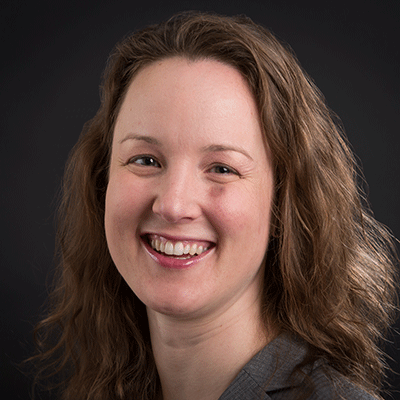
Erin Frey, DVM
What you do at UNC Gillings (and why you love it): I am an MPH student in the Leadership Track with a special focus on field epidemiology. I love being a student at UNC Gillings because I really enjoy the collaborative dynamic between students and faculty members. Many students are already within their career and are able to incorporate their background in the classroom. The use of first-hand experience really encourages rich discussions on how we can work together in the field as different stakeholders. The faculty are welcoming and inclusive, and I really love how they take a colleague approach with students and encourage our voices to be heard.
Tell us about your recent publication: My manuscript, which I began as part of a project for Introduction to Global Public Health led by Karine Dubé, has been accepted by the Journal of the American Veterinary Medical Association (JAVMA) and will be published in December. The paper is essentially a call to action for companion animal veterinarians to more fully engage in One Health efforts to promote antimicrobial stewardship. Unfortunately, more and more bacteria are becoming resistant to antibiotics, and as a result, there is fear that someday there won’t be a cure for infections caused by microbes like E. coli or Staphylococcus bacteria. Since these microbes can spread between humans and animals as well as through the environment, it is vital that stakeholders in all areas contribute to the research and behavior changes around antimicrobial use. One way to reduce the needs for antibiotics in the first place is to promote health through preventive medicine such as vaccines, behavioral change, good hygiene, diet or exercise.
What is your favorite pastime? I love working in my garden! I grow both flowers and tomatoes. While I work in the garden, I enjoy watching wildlife in action especially the birds. Working in the garden is my version of mindfulness and exercise because being in nature is really calming even when I am working hard shoveling mulch or digging in the dirt. I don’t have to worry about work while I’m in my garden. My plants don’t complain, and they don’t care about when the next PowerPoint is due!
If I could wake up tomorrow having mastered one new ability: I would play the cello or piano because I love music. I played clarinet from 4th grade until adulthood but sadly I haven’t had much time recently because I am so busy with school, work and family life. Recently, I was really excited when my son came home and said that he wanted to play the cello. Maybe that means that I should get my clarinet out again and learn how to play the piano so that we can play together!
What is a fictional character that you identify with? I am big fan of Harry Potter, so I know that if I were sorted in Hogwarts, I would be a Ravenclaw. I am not afraid to say that I love to learn and study. Having said that, if I had to choose a specific character that I identify with, I would have to say Hermione Granger. Even though she wasn’t a Ravenclaw, she always valued learning and reading books, which I enjoy. Another aspect of Hermione’s character that I both admire and identify with is her willingness to break rules if they are unjust in order to protect and defend her friends. Hermione was able to walk that thin line between following the rules and doing what’s right.
What is something that you are looking forward to? In my career, I would like to continue to build stronger connections within the public health field as well as between public health and other stakeholders who have an influence on the health of the public. When it comes to professionals in both human health and animal health, our work is more alike than different. For instance, I learned from my experience as a veterinarian that I experience many of challenges that pediatricians face. Our patients, whether a baby or a puppy, are not able to speak for themselves, and we rely on our physical examination skills and our ability to communicate with their caregivers, who speak on their behalf. In a lot of ways, I look for ways to help people too because if I recommend that a dog needs more exercise, I know that I am promoting exercise for the owner as well. It’s a mutual benefit on both sides. I look forward to being able to show those similarities so that we can do more collaborative and interdisciplinary research and demonstrate how we are all connected. Each person in the public health field is valuable and has a role to play regardless of whom we are serving.
Spring 2018 Student Spotlight – Claudia Panames
Claudia Panames teamed up with three other UNC students to compete in the 2018 CLARION Case Competition at the University of Minnesota. Each year, teams from various universities across the nation come together to discuss and propose a solution to current public health issues. Below is Claudia’s account of her experience at the event:
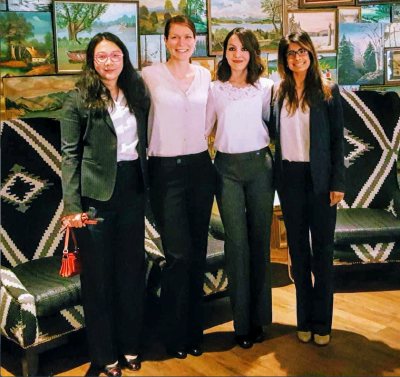
(From the left to right) Yimo Wang (Pharmacy), Mallory Michalak (Social Work), Claudia Panames (Public Health), and Nisha Kamath (Dentistry)
“Our case focused on the opioid epidemic in a fictional town named “Delville” in West Virginia (W.V.), with high rates of unemployment, poverty, and difficult access to healthcare. The story focused on two unrelated characters. Both were 64 year olds who lived alone. Both suffered from depression and were uninsured. Both were opioid dependents. The major difference was their health outcome: one person survived an opioid overdose while the other did not.
My team and I researched programs that W.V. has already implemented to alleviate the opioid crisis. Although the state has programs focused on the several specific populations, we did notice a gap in services: there were no programs for people 45+, unemployed, uninsured and living in rural communities, such as the two individuals in the case. We found this gap particularly shocking since almost 50% of the W.V. population live in rural areas, and almost 30% of the W.V. population is 45 years of age and older. We wanted to propose a strategy that focused on this particular demographic.
My teammates and I developed a strategy with the following three components: 1) Integrated Chronic Pain Management 2) Education to health providers and 3) Social Connections. We proposed creating a network in which big hospitals in larger cities support smaller communities like “Delville” by opening small “satellite” clinics in rural communities to offer integrated chronic pain management, so patients and providers do not have to rely solely on opioids but on a “menu” of options such as physical therapy, counseling, peer recovery coaching to treat patients with chronic pain. We also proposed that providers comply with the proper chronic pain management and opioid prescription and monitoring guidelines. We also focused on the importance of establishing partnerships with already existing associations to connect isolated citizens with the community and help them find employment opportunities and social connections, which may be more difficult in rural communities.
The whole experience was very enjoyable. It was a great opportunity to work on an interdisciplinary team. I was able to learn from the perspectives and experiences of three very different people with very different professions and cultural backgrounds. Now the four of us are really good friends!”
